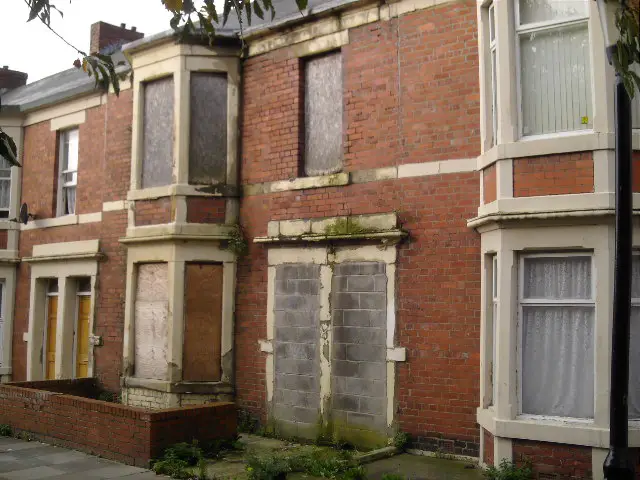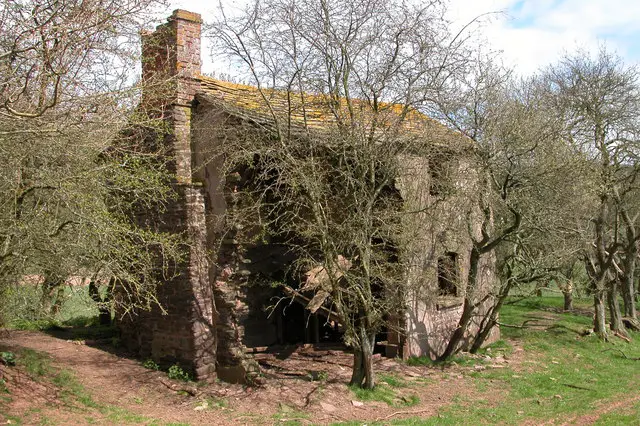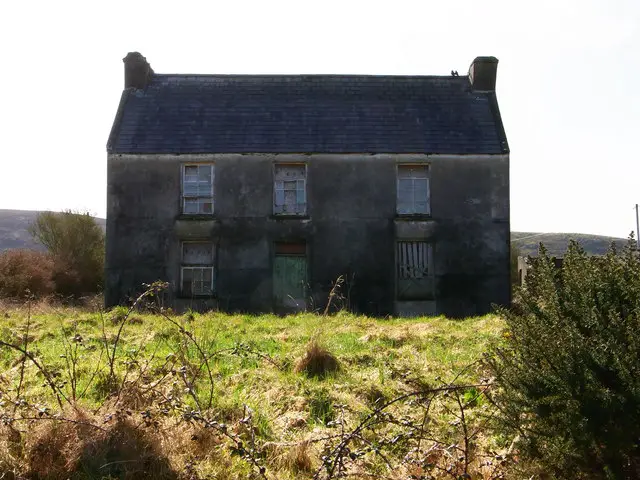
How Long Can Someone Leave a Property Derelict?
There are no set rules in place to state how long you can leave a property derelict.
However, Council Tax can be increased if your house has been empty for two years and up to four times if it has been vacant for ten years or more. But, you do not have to pay Council Tax if your property is derelict. You can challenge your Council Tax Band to remove your derelict property from the Council Tax valuation list.
You should also be aware of other details about derelict properties. Such as how they differ from the abandoned property, how local governments control derelict properties, and the legislation local governments can enact. You should also learn how to handle derelict property and the risks of letting it become one.
Difference Between Abandoned and Derelict Properties
Vacant properties can either be abandoned or derelict, but their meaning differs in each case.
Abandoned properties are neglected, and the owners remain unknown. In contrast, derelict properties are owned by someone not taking care of the property. As a result, legal owners may be held liable if someone is injured on their property due to negligence. Both properties are in poor condition and may be unsafe to access.
How Local Authorities Regulate Derelict Properties

Local authorities in the United Kingdom are responsible for regulating derelict properties. They have to ensure that the property owner is fulfilling their duty to maintain the property and that it’s not posing a danger to the public.
If you find a neglected property in your neighbourhood, you can report it to your local authority. The local authority will investigate the situation and decide whether or not the property qualifies as derelict or abandoned. If the authorities find it derelict, they’ll send the owner a notice telling them how long they have to clean up their act before further action is taken.
Moreover, local authorities have laws governing the management of derelict properties. These include Empty Dwelling Management Order (EDMO) and Compulsory Purchase Order (CPO). An EDMO allows local authorities to take over the ownership and maintenance of a building. In contrast, CPO enables local governments to buy derelict properties without the owner’s consent.
Abandoned Property FAQ
What Are the Insurance Options for Unoccupied Properties?
Most home insurance companies will only cover a vacant house for 30 to 60 days, but not a derelict house. If you intend to leave your property vacant for more than 30 days, check with your policy provider to determine if your coverage can be extended or if you need to acquire a specialised unoccupied property insurance policy.
How Many Derelict Properties Are in the UK?
There are 238,306 long-term empty homes in England as of 2021, though not all are derelict. Compared to 2016, these figures have increased by 20% as long-term vacant homes were 200,145.
Are There Risks to Leaving a Property Derelict?
A derelict farm with a run-down fence and farmhouse by Siggy Nowak
Derelict properties pose several risks, including:
- If a property is left derelict, safety issues may arise. For example, if there are large holes in the walls, floors, or windows where glass has been broken out or removed, this can become a hazard for neighbours or passers-by. In addition to being unsafe, these properties can also become breeding grounds for rodents or other pests that could spread disease.
- A derelict property’s most insidious risk is that it can lower the value of its neighbours’ properties. When your neighbour’s property looks run-down and unkempt, it can make you feel like your home is less valuable. As a result, you may have a harder time selling or renting your home in the future as the sale price and rental value will be negatively affected.
- If a home is abandoned, vandals will likely break in and destroy the property. If this happens, you might lose a lot of money when you finally decide to sell the house.
- Pests and pests’ nests. A vacant house is an open invitation for pests like mice, rats, and even bats. They’ll eat through anything they can find and make nests all over your home. If they get inside your walls or attic, they may also cause serious structural damage.
- When a building has been vacant for a long time and water leaks, mould spores spread swiftly and form enormous colonies. Due to its toxic properties, the mould must be professionally removed before anyone enters the building.
How Should You Manage a Derelict Property?

If the derelict property is in your neighbourhood or a place you often access, like on your way to work or a shopping centre, it can be an eyesore and pose a risk to the community. In particular, they are often breeding grounds for crime, and they can tarnish the reputation of your neighbourhood. If you see one in your area, here’s what you should do:
You must report the property to your local government. Once you have reported the property, the local authorities will visit it to confirm that it is indeed derelict.
If they deem the property safe, they may decide to tear down any unsafe structures on site and remove any hazardous materials such as mould or asbestos. The process can take several months to several years, depending on how much work needs to be done.
If you’re the owner of a derelict property, the last thing you want is your property’s condition to deteriorate further. So, what can you do to prevent that from happening? Here are some tips:
- Keep up with repairs and maintenance. It is probably one of the most important things you can do as an owner of a derelict property. Even if you don’t plan on selling or renting it anytime soon, keeping up with repairs and maintenance will help slowly keep your property in good shape for as long as possible. It’ll also ensure that when someone does buy or rent it, they aren’t stuck wiNo set rules in place state how long you can leave a property derelict.
However, Council Tax can be increased if your house has been empty for two years and up to four times if it has been vacant for ten years or more. But, you do not have to pay Council Tax if your property is derelict. You can challenge your Council Tax Band to remove your derelict property from the Council Tax valuation list.
You should also be aware of other details about derelict properties. Such as how they differ from the abandoned property, how local governments control derelict properties, and the legislation local governments can enact. You should also learn how to handle derelict property and the risks of letting it become one.
